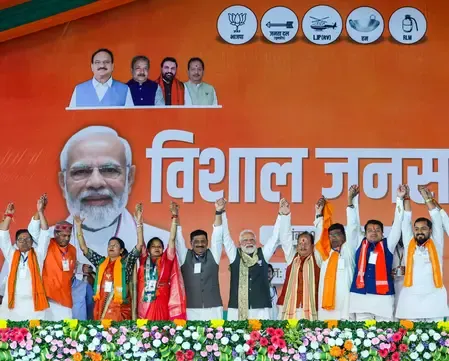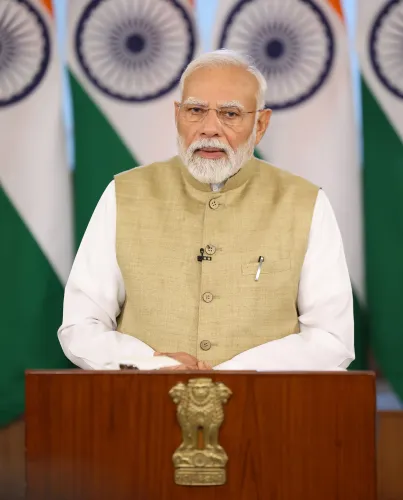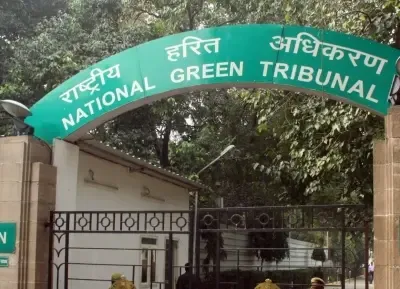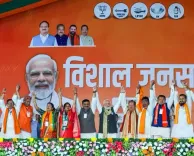Should the Centre Reconsider Its Policies on Sugarcane Farmers?
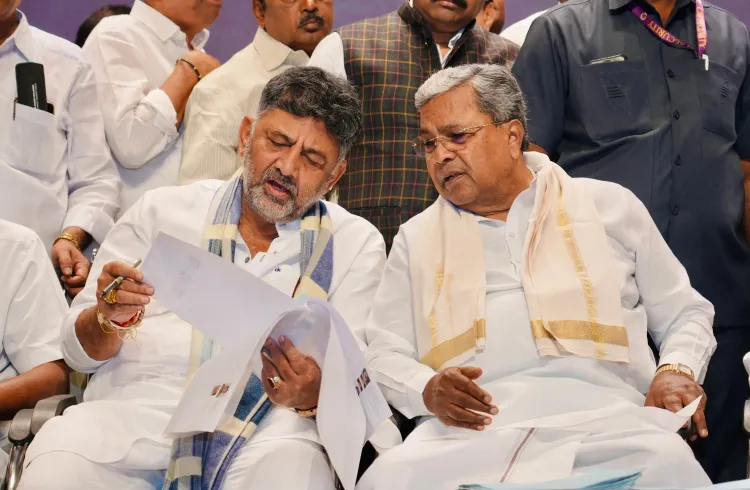
Synopsis
Key Takeaways
- Call for policy reevaluation to support sugarcane farmers.
- Highlighting the gap between cultivation costs and market prices.
- Need for transparent pricing mechanisms to ensure fairness.
- Importance of sustainable agricultural practices for farmer security.
- Government accountability in addressing farmers' concerns.
Bengaluru, Nov 8 (NationPress) Karnataka Chief Minister Siddaramaiah has urged the Centre to reevaluate its policies to guarantee that sugarcane farmers obtain their rightful share in terms of price, dignity, and fairness.
In his correspondence to Union Minister Pralhad Joshi, Siddaramaiah stated, “The Union Government must revisit its strategies and take prompt action to ensure that the sugarcane farmers of Karnataka are compensated fairly in terms of price, respect, and justice.”
Siddaramaiah highlighted that the Union government has been neglecting the critical issue of the increasing disparity between the cost of cultivation and the price farmers receive for sugarcane, which has led to distress for thousands of farmers.
He pointed out that the Fair and Remunerative Price (FRP) established by the Central Government at Rs 355 per quintal at a recovery rate of 10.25 percent is being touted as a significant victory, with claims of a 105.2 percent margin over production costs.
However, Siddaramaiah noted that every farmer in Karnataka understands that since 2014, expenses for fertilizers, labor, transportation, and other inputs have more than doubled. In contrast, the FRP has seen a compound annual growth rate (CAGR) of merely 4.47 percent, rising from Rs 210 per quintal in 2014 to Rs 355 today.
Furthermore, he pointed out that the FRP was not raised for two consecutive years during the NDA administration, causing severe financial losses for farmers, averaging Rs 20 per quintal each year.
“During the UPA years, the implementation of the FRP system aimed at ensuring farmers’ dignity and livelihood security saw a CAGR of 12.96 percent,” he remarked.
Siddaramaiah elaborated that while the growth rate was 9.5 percent under UPA, the NDA government increased it to 10.25 percent, thereby reducing the effective FRP.
He stressed that when comparing at a 9.5 percent recovery rate, the current FRP is merely Rs 329 per quintal, translating to an actual growth of just 3.8 percent CAGR.
“This manipulation of figures has deceived the farmers, who deserve transparency rather than superficial gestures,” Siddaramaiah emphasized.
Moreover, he remarked that the Union Minister’s letter mentions ethanol blending and the rise in ethanol procurement as a benefit to the sugar sector. Yet, despite ethanol blending reaching 10 percent by 2023, the actual situation is far from the optimistic projections.
“Ethanol supply from Karnataka distilleries has only slightly increased, from 38 crore litres in 2022-23 to 47 crore litres in 2024-25, despite an installed capacity of 270 crore litres. The Union Government’s assertions of significant ethanol procurement lack support from their own data,” he stated.
Siddaramaiah noted that although ethanol blending was under 5 percent in 2013 with a recovery rate of 9.5 percent, the FRP enjoyed a robust CAGR of 12.96 percent during UPA's tenure.
“Currently, with ethanol blending at approximately 20 percent and a recovery rate of 10.25 percent, the CAGR has plummeted to merely 3.8 percent,” he added.
The Chief Minister concluded that unfortunately, the Union government has yet to establish a pricing mechanism that guarantees equitable distribution, leaving farmers susceptible to unscientific FRP and recovery rates, even as the sector overall performs better.

